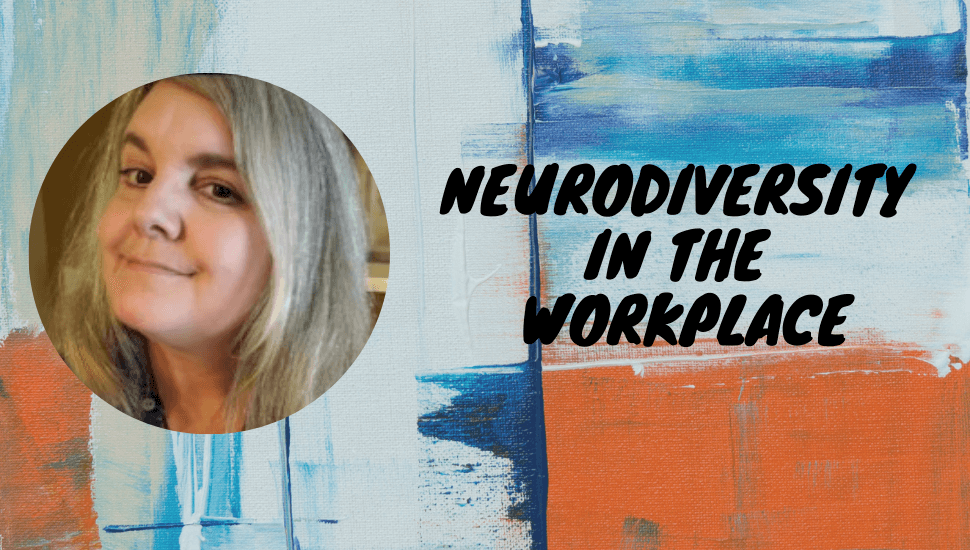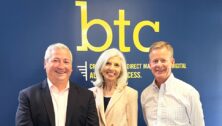Neurodiversity in the Workplace

Chances are, you may know someone who is neurodivergent. They are Autistic or have Attention Deficit Hyperactivity Disorder (ADHD), Obsessive-Compulsive Disorder (OCD), Bipolar Disorder, Tourette’s Syndrome, Gifted Intellects, Mood Conditions, Anxiety, Dyslexia, Dyspraxia, Dysgraphia, or Dyscalculia. Perhaps you have these yourself.
December 3rd is International Day of Persons with Disabilities and today we want to acknowledge that having a disability is not an inability. We just need to remove barriers to create an inclusive and accessible society for all, including those who are neurodivergent.
Many neurodivergent individuals face underemployment because it affects their cognitive abilities. Some individuals may struggle with soft skills such as social anxiety, making eye contact, sensory issues, or other challenges.
Communication skills may not be their strongest skill set. Some may have difficulty articulating their thoughts. On the other hand, they may be so strong in communicating that they over-explain, which might result in miscommunication with neurotypicals.
Neurodivergent individuals may have challenges finding work, interviewing, onboarding, training, collaborating with their co-workers, being given appropriate accommodations by their employer, communicating what reasonable accommodations they need, and even staying employed in a W-2 job.
Why?
There are neurotypicals in the workforce who may not have the time, patience, or understanding to work with neurodivergent individuals who may need a job coach. On the flip side, according to one autistic, there may be neurodivergent individuals who are exhausted trying to educate neurotypicals about how they “work.”
Neurodivergent individuals may act differently. They may have some quirks or idiocracies and may beat to a slightly different drum (but don’t we all?). They may have something one autistic has self-described as a “crooked brain.”
Although many people are proponents of diversity and inclusion or diversity, equity, and inclusion (DEI), other acronyms are being used.
DEIA stands for diversity, equity, inclusion, and accessibility.
DEIB stands for diversity, equity, inclusion, and belonging.
Belonging is essential. How do I know this? I married a neurodivergent man (now deceased from leukemia) and have a neurodivergent adult child. They have feelings, too, just like everyone else, and want to belong, just like everyone else.
Most parents would most likely want the best for their children as they grow from infancy to adulthood. They can act as advocates and supporters and find resources as needed.
As someone who continuously seeks knowledge, I have joined my daughter in several meetings as an ally at the “The Diversity with Dignity Global Roundtable” to learn more about autism and neurodiversity.
One of the autistic founders of the Global Roundtable, who uses the pseudonym, Samantha Craft, is the author of Everyday Aspergers, and she is also working on another book. Her real name is Marcelle Ciampi, and she is the Senior Manager DEI and Ambassador for Ultranauts Inc.
Marcelle is an expert in the field of “Neurodiversity in the Workplace,” a topic she will present for the Great Careers Groups by Zoom on December 14, 2021. Everyone is invited to attend this free event. Register here.
“Remote but inclusive,” Ultranauts is an engineering firm, and the staff works remotely in cognitively diverse teams in 29 states across the U.S.
Ultranauts built a universal workplace “that embraces diversity and serves as a replicable blueprint for other employers.” They also have job postings on their website. Employers seeking a new model to expand with a more diverse workforce might want to reach out to learn more and also read this article on Neurodiversity: Paving the Way to Universal Design Inclusivity in the Workplace.
As someone continuously learning more about neurodiversity, I hope you have gained some new nuggets of information too.
One caveat to this article I should mention is that there is no “one size fits all.” The generalized statements made in this article may differ by person.
Want to read my previous articles on neurodiversity filled with some helpful resource links? Read LinkedIn & Neurodiversity Hiring: Celebrating Autism Acceptance Month and LinkedIn Outreach & Being the Voice on Hiring People with Autism or Asperger’s.
Missed the previous article It’s That Giving and Receiving Time of Year, Even on LinkedIn? Read it here.
NEXT STEPS
- Subscribe to my newsletter on LinkedIn for bright ideas to manage your career.
- Join as a member at https://greatcareersphl.org/membership of the #1 business networking association on the Philadelphia Business Journal’s Book of Lists.
- Register on links on the events page for these upcoming online events.
- 12/3 Fri – Interview Preparation
- 12/3 Fri – How Credibility is the Key to Your Success (on Clubhouse)
- 12/6 Mon – Career Success Group
- 12/6 Mon – The Executive Edge; How to Get Your Ideal Job Faster
- 12/6 Mon – Virtual Job Seeker Support Group
- 12/7 Tues – Branding
- 12/7 Tues – Business Executives Networking Group (BENG)
- 12/8 Wed – PowerThinking: Rejuvenating Your Amazing Mind Resilience Building Call
- 12/8 Wed – Negotiate Your Salary at Every Step of the Process
- 12/9 Thurs – Rock Your Career Pivot: Leadership Lessons from Colin Powell
- 12/10 Fri – Interviewing Techniques
- 12/10 Fri – Am I Underemployed? Seven Questions to Ask and Why (on Clubhouse)
- 12/13 Mon – Career Success Group
- 12/13 Mon – Small Mistakes, Big Consequences: Using Soft Skills Effectively in an Interview and on the Job to Succeed
- 12/14 Tues – Make a Strong Start in 2022 at Business Executives Networking Group (BENG)
- 12/14 Tues – Neurodiversity in the Workforce ***
- 12/14 Tues – Business Executives Networking Group (BENG)
Connect With Your Community
Subscribe to stay informed!
"*" indicates required fields









































![95000-1023_ACJ_BannerAd[1]](https://vista.today/wp-content/uploads/2023/03/95000-1023_ACJ_BannerAd1.jpg)









